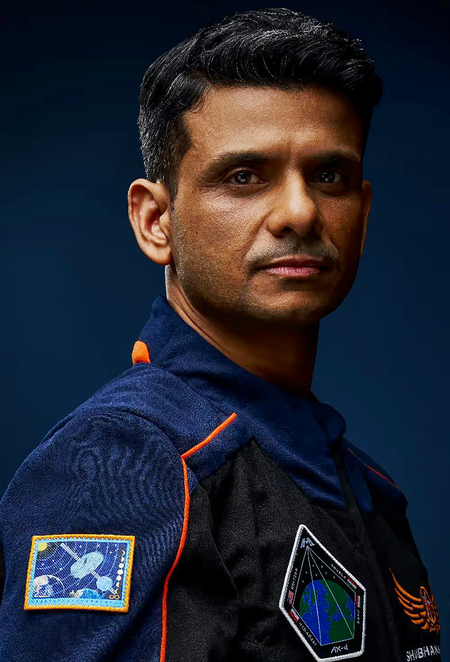New Delhi, June 25 (IANS) IAF Group Captain Shubhanshu Shukla’s mission to the International Space Station is a step towards the goal of a developed India, said Union Minister of State (Independent Charge) for Science and Technology Dr Jitendra Singh on Wednesday.
Lucknow-born Shukla launched to the ISS at 2:31 a.m. EDT (12 noon IST), from Launch Complex 39A at NASA’s Kennedy Space Centre in Florida, aboard a new SpaceX Dragon spacecraft on the company’s Falcon 9 rocket.
With the success of the mission, India will have an astronaut in space after 41 years. He will become the first Indian to reach the orbiting lab, and the second to be in space after Rakesh Sharma’s flight in 1984.
Speaking to IANS, Singh attributed Shukla’s flight to the government’s reforms and policies, such as the opening of the space industry to the private sector.
“I would say that this (Shubhanshu Shukla’s mission to space) is a very big flight towards the goal of a developed India that Prime Minister Narendra Modi has set for us. It was possible only because of space reforms, where the space industry was opened up to the private sector, and it was given a very comprehensive shape,” Singh said.
Shukla was among the 12 finalists selected by PM Modi for the Gaganyaan Mission. He was then selected among the four to partake in Axiom Space’s Mission-4 to the ISS.
IN-SPACe Chairman Pawan Kumar Goenka told IANS that Shukla’s journey to the ISS will significantly help India in its own human space flight mission, Gaganyaan.
“The government decided that it would be very useful to have one of the astronauts fly in the Axiom-4 mission as a precursor to Indian human space flight. So IAF Group Captain Shukla, one of the astronauts for Gaganyaan, was selected,” Goenka said.
Shukla’s mission “will enable ISRO to learn more about how to do human space flights, and his real-life experiences of space travel could be very useful,” he added.
Scientist P.K. Ghosh called it “a moment of great pride for India”. He told IANS that Shukla is also likely to undertake “spacewalks” and that his 14-day mission can be extended for a maximum up to 21 days”.
Retired ISRO senior scientist Sivasubramanian explained the procedure of selecting astronauts for such missions.
“An astronaut must endure severe shocks, vibrations, extreme thermal conditions, and the complex flight trajectory. The astronaut must also be a pilot with not only physical endurance but also strong mental resilience to work in isolation with limited contact. Another key quality is their ability to conduct experiments. They must not just travel to space and return, but also carry out important scientific work…,” Sivasubramanian told IANS.
He also called on the younger generation to get inspiration from Shukla’s mission to space and to have a strong passion for science and technology.
Shukla is serving as the pilot of the mission alongside Commander Peggy Whitson of the US.
The other crew members include Slawosz Uznanski-Wisniewski of Poland and Tibor Kapu of Hungary, both serving as mission specialists.
He is expected to dock at the orbiting laboratory by about 4.30 pm IST on June 26.
